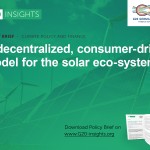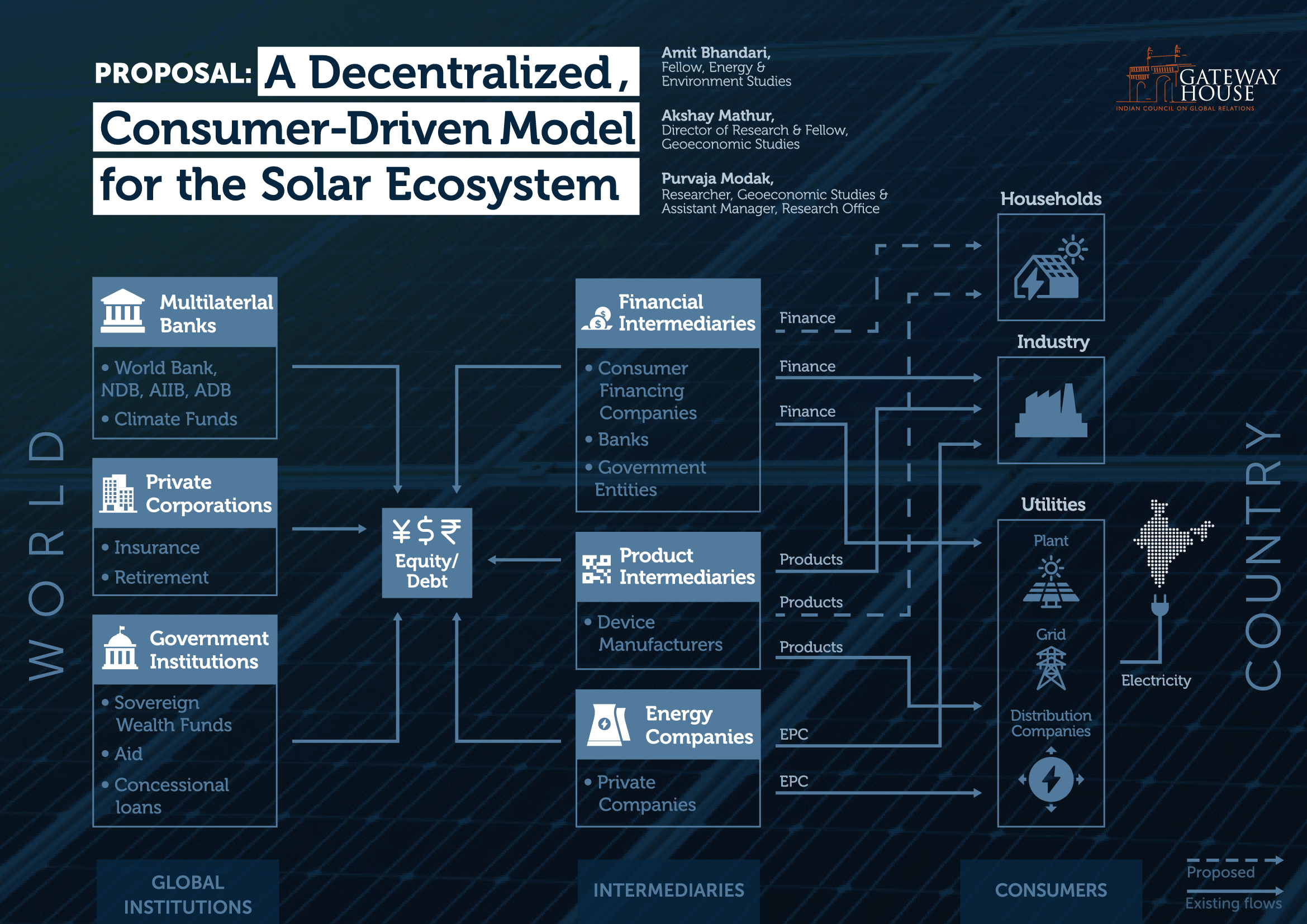Abstract: The transition from fossil-fuel based energy usage towards renewable energy sources needs to be accelerated. The issue is at the developing country level, where a lack of funds and technology – both promised by international institutions but not delivered – exacerbates the problem. Where financing is available, very few “bankable” projects exist for global investment.
To hasten the transition, a new decentralized, consumer-based renewable energy approach must be adopted. Solar energy technology is particularly suited for this and can see early gains for climate change. The G20 can create policies to help develop products for consumers and facilitate global private capital and multilateral finance towards this goal.
You can download the PDF version of ‘A decentralized, consumer-driven model for the solar eco-system’ on G20-Insights.
Amit Bhandari is Fellow, Energy & Environment Studies, Gateway House.
Akshay Mathur is the Director of Research and Fellow, Geoeconomic Studies at Gateway House.
Purvaja Modak is Researcher, Geoeconomic Studies and Assistant Manager, Research Office at Gateway House.
This paper was exclusively written by Gateway House: Indian Council on Global Relations for G20-Insights. You can read more exclusive Gateway House content here.
For interview requests with the author, please contact outreach@gatewayhouse.in.



